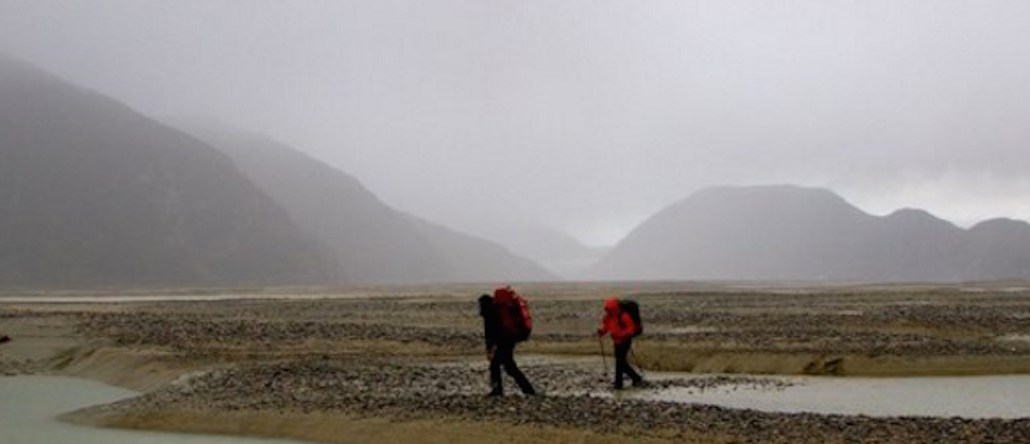Secure your place at the Digiday Media Buying Summit in Nashville, March 2-4
How Red Bull’s ‘high performance group’ plumbs the limits of human potential

An applied biomechanics engineer, an ecologist and a spiritual advisor walk into a global marketing brand.
It sounds like the setup to a joke, but it’s a reality inside the Red Bull “High Performance Group.”
The group, headed by consultant Andy Walshe, works with Red Bull’s community of athletes and scientists to figure out what he calls “the limits of human performance,” a community-building and content-marketing foray for the energy drink company that is unlike any other.
The group includes Walshe, a coach and a framework program coordinator, plus a network of about 50 people it draws on based on need, like discipline experts in neuroscience, dietitians, elite coaches or spiritual advisors. An athlete might come in and ask for something specific to improve his or her performance: meditation from the spiritual advisor, or diet advice from a nutritionist, or maybe brain mapping from the neuro experts. The brand also keeps relationships with research institutions and community.
The brand approached Walshe back in 2008 to try and harness the many different athletes and artists that were signed with the company and take it to new levels. “On the marketing side, it creates a point of difference,” said Walshe.
Red Bull Stratos, the brand’s space diving project was the group’s highest-profile endeavor. It took two years to put together and the jump, executed by Austrian skydiver Felix Baumgartner, broke three global records. But — it was also a marketing coup for Red Bull. Over 8 million people watched the livestream of the jump, and the brand ushered in a new age of experiential and buzzy marketing. The private company said at the time that sales jumped 17 percent after Stratos.
Red Bull is not content to rest there, though. Walshe’s team has flown neuroscientists and surfers to Mexico to see how the brain works while the surfers are riding the waves; and sent athletes to the Patagonia mountains for two weeks of physical testing alongside former U.S. Navy Seals. Beyond extreme sports, Red Bull has run its Music Academy since 1998 that brings musicians and singers from all over the world together once a year — and has done massive campaigns for that too.
Total sales were up 4.2 percent to 5.6 billion cans in 2014 compared with the year prior.
The High Performance Group is a lab approach that other brands, like Nike, have also taken. Nike’s Sport Research Lab brings together engineers, designers and athletes to develop insights to drive Nike products. Before the Olympics in Sochi, physiologists re-created the temperatures there so athletes could train and Nike products could be re-engineered for those temperatures.
It’s a natural fit for Nike. The link to traditional sports for Red Bull is less obvious, however. Instead, the brand strives to create “epic” content for its adrenaline-junky customers, according to Walshe. Other projects include tests of how extreme altitude affects athletic performance, which has been turned into videos and photos and stories. All of this makes up Red Bull’s content offering — and the bulk of the brand’s marketing: RedBull.TV runs a live music, sports and lifestyle channel showcasing this content, and RedBull.com is more likely to tout the brand’s media empire than its high-octane beverages.
Next, Walshe is turning his team’s attention away from the physical and onto the creative: A new project will survey high achievers in art, poetry, literature, magic and more to determine how their brains work.
It can be hard to push this kind of thinking internally, but Walshe said the brand is always behind him “We do have to hope they trust us, and we do have to back ourselves and our work up,” he said. “We’re really putting ourselves out there on this one.”
Homepage image: Red Bull’s Patagonia Mountains expedition
More in Marketing

WTF are tokens?
When someone sends a prompt or receives a response, the system breaks language into small segments. These fragments are tokens.

AI is changing how retailers select tech partners
The quick rise of artificial intelligence-powered tools has reshaped retailers’ process of selecting technology partners for anything from marketing to supply chain to merchandising.

YouTube’s upmarket TV push still runs on mid-funnel DNA
YouTube is balancing wanting to be premium TV, the short-form powerhouse and a creator economy engine all at once.





